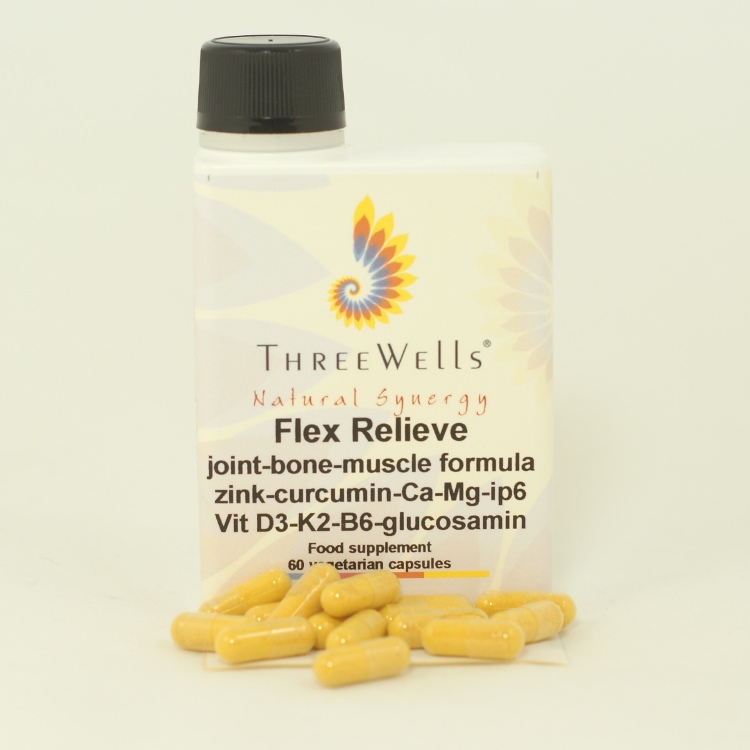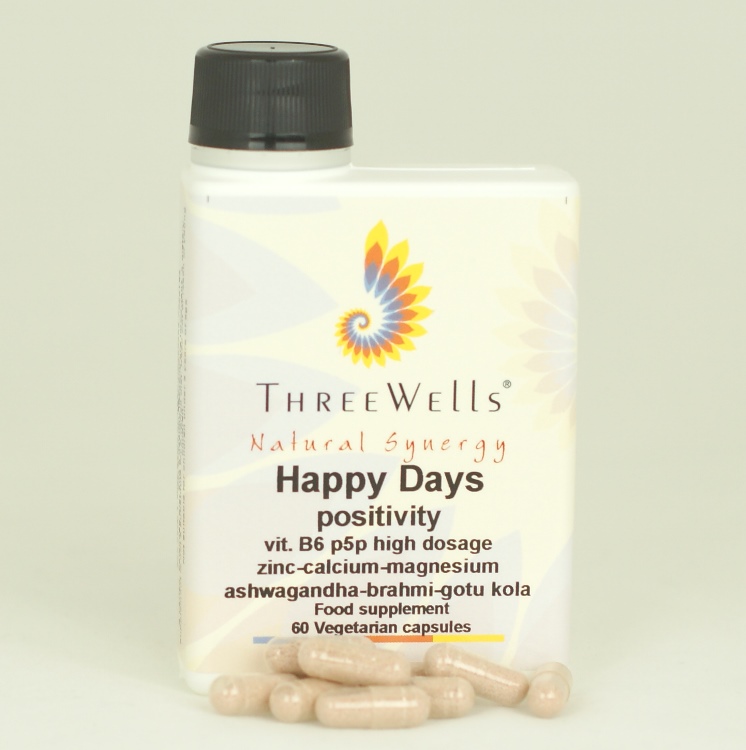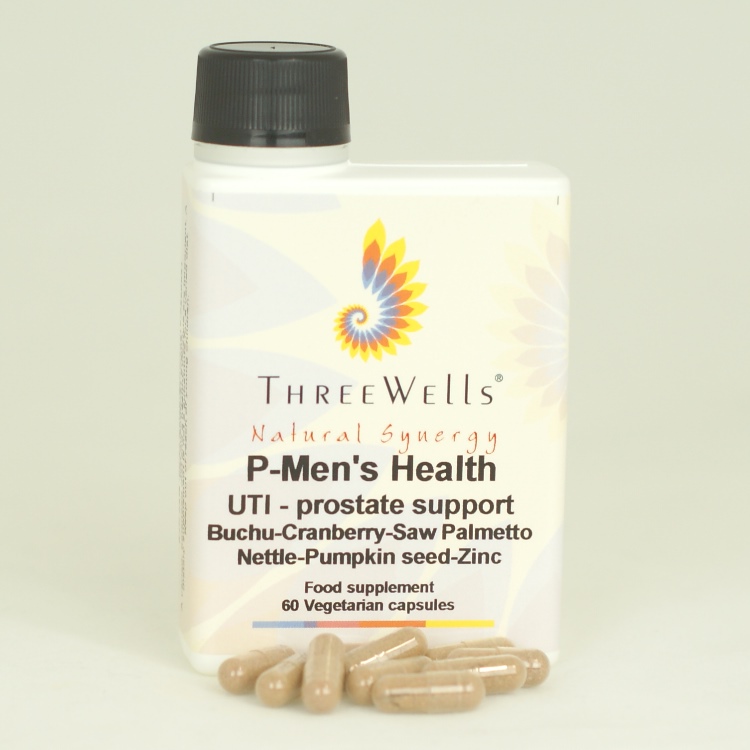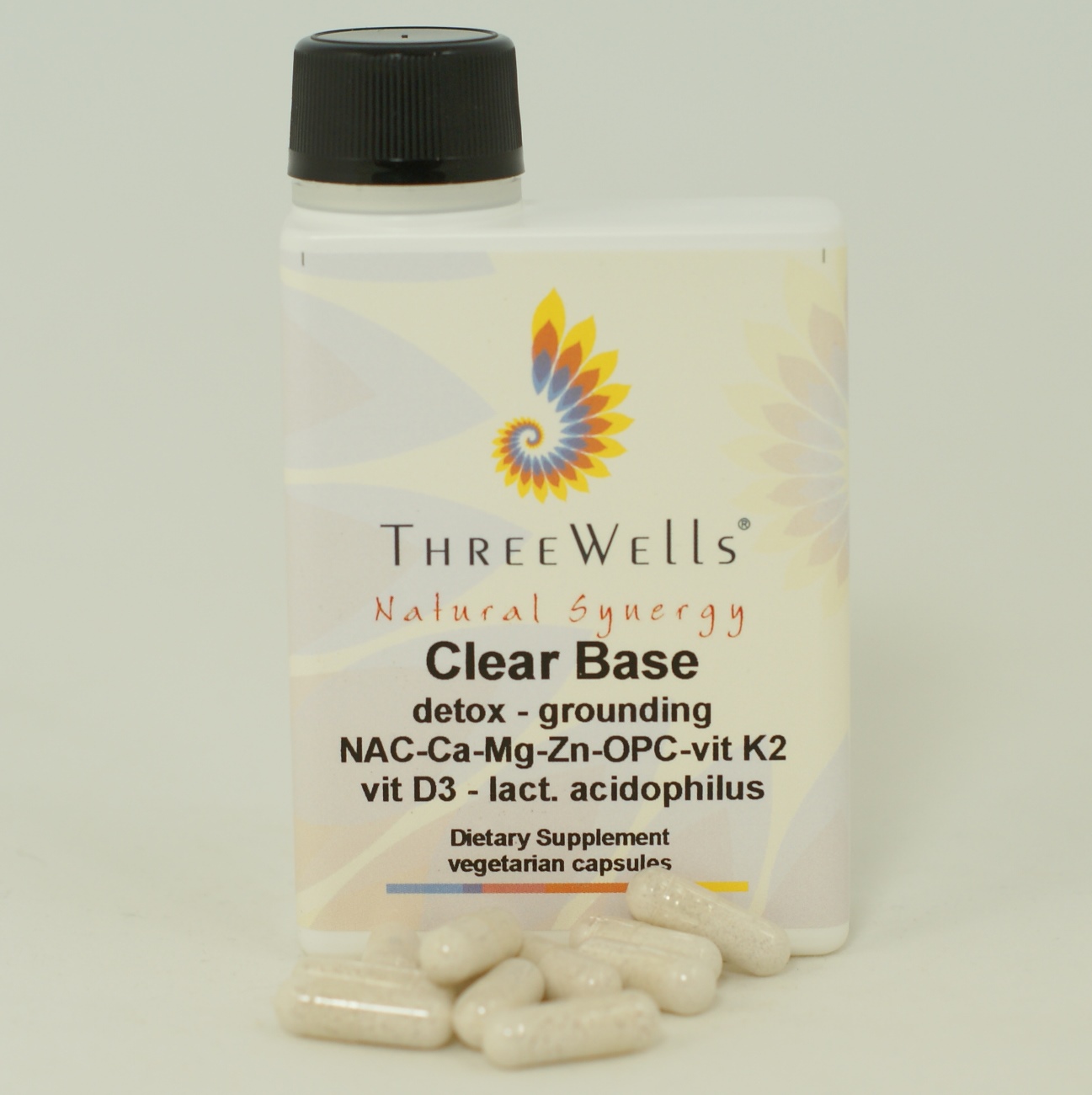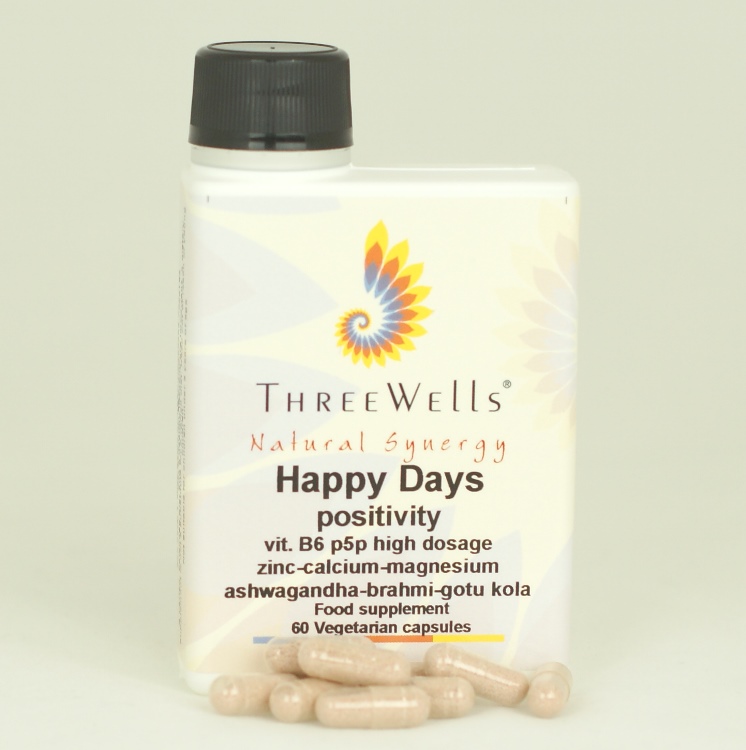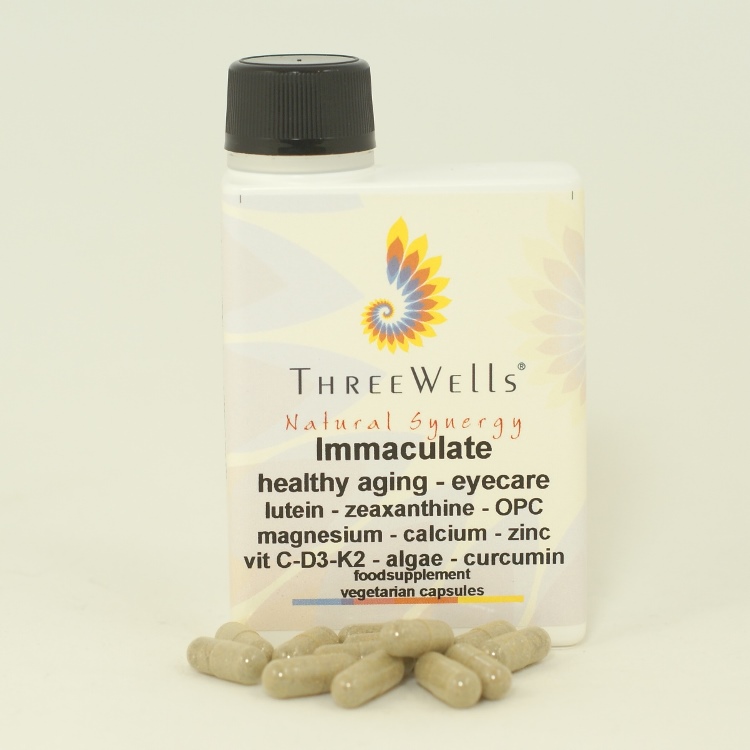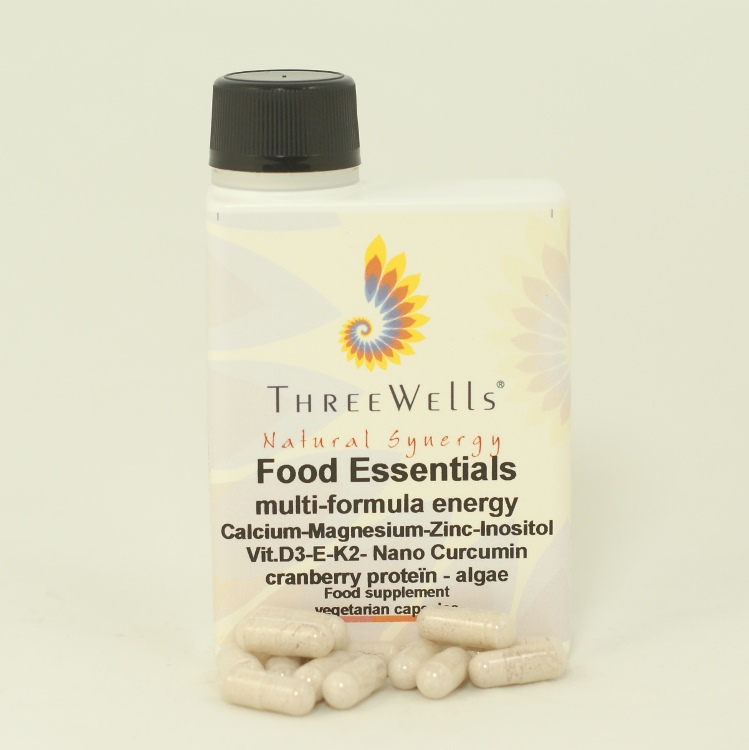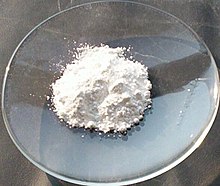
zinc bisglycinate
Zinc is an essential mineral. We only use zinc bisglycinate, this is an amino acid bonded mineral through which it is properly absorbed at the cell level and is able to pass the blood brain barrier. Why is zinc so important?
- supports the immune system
- helps protect cells from oxidative damage, against free radicals
- is good for the skeleton
- is good for the cell division process
- contributes to normal concentration, contributes to normal cognitive function,
- is good for memory, helps with stress/tension (as a circumstance, such as in stress situations)
- plays a role in the normal build-up and breakdown of carbohydrates, fats, proteins and DNA
- plays a role in building body protein
- is good for vision, to stay sharp in the dark, supports the condition of the eye
- is good for your hair, contributes to normal hair growth
- helps to maintain normal testosterone levels in the blood
- contributes to normal fertility and reproduction, contributes to sperm production
- is important for the skin, is good for nails
- contributes to a normal metabolism of carbohydrates, fat and protein
- contributes to supporting a healthy acid-base balance
Zinc is one of the most common
minerals
in the body (after
iron)
and is present in every cell. Approximately 20-40% of the zinc consumed is absorbed by the body, depending on the bioavailability in the actual food source (bioavailability of zinc from cereals and plant foods is lower than that from animal food). The groups of foods that supply the most bioavailable zinc are usually supplied by red meat and poultry, with oysters containing more zinc per serving than any other food. Other food sources include beans, nuts, certain types of seafood (such as crab and lobster), whole grains, fortified cereals and dairy products.
An average-sized adult has 1.4 to 2.3 g of zinc and needs an average consumption of zinc of about 10-15 mg per day. Because the body does not naturally produce or store zinc, it is considered an essential nutrient and you must obtain it through food or supplements.
Zinc plays an important role in growth and development, immune function, neurotransmission, vision, reproduction and intestinal transport. In fact, many aspects of cellular metabolism are zinc dependent and, in order for zinc to perform these roles, it needs a number of specific systems to transport zinc through the cell membrane. Zinc transport proteins fulfil this role and are therefore indispensable in the physiology of zinc.
Zinc features
At the cellular level, the function of zinc can be divided into three categories:
1) Catalytic
More than 100 different enzymes depend
on zinc because of their ability to catalyse
vital chemical reactions
2) Structural
Zinc plays an essential role in the folding and structure of some proteins.
Proteins are built up like loose chains that fold around themselves to form more stable, compact structures. Zinc can often help this process by forming finger-shaped structures, also known as 'zinc finches whites'. These are one of the most common groups of proteins and are involved in numerous cellular processes, such as playing an essential role in the development of blood cells, as described in the article Zincvingereiwitten in health and disease.
Other examples of zinc fin proteins include nuclear receptors that bind and respond to steroids and other molecules, such as vitamin D, vitamin A, estrogen and thyroid hormones.
Metallonaoneins are also examples of proteins with a zinc-binding motif. They are small metal-binding cysteine-rich proteins with a high affinity for zinc. They work with zinc transporters and regulate the free zinc concentrations in the cytosol, as described in THE PHYSIOLOGICAL, Biochemical and MOLECULAR ROLES OF ZINC TRANSPORTERS IN ZINC HOMEOSTASIS AND METABOLISM.
Metallothioneins are also involved in the regulation of the homeostasis of metal ions, the detoxification of heavy metals and the defense against oxidative stress at the cellular level.
Removal of zinc from zinc proteins leads to a wrong folding of proteins and loss of function.
3) Regulation
By acting as transcription factors and binding to DNA, zinc fin proteins can regulate gene expression.
Zinc also appears to play a role in 'apoptosis' (cell death), modulating the activity of cell signaling enzymes, influencing hormone release and the transmission of nerve impulses, which is discussed in the article Zinc in Regulation: The Nature and Significance of "zinc signals" .
The absorbability of zinc in the body
Studies with a direct comparison of the biological availability of various forms of zinc in humans are rare. The important fact is that the form of zinc must be dissociated into zinc ions, which then bind to ligands (proteins) that transport the zinc to the cells of the small intestine. There are specific transport proteins that transport zinc through the cell membrane to the portal circulation, where it is transported directly to the liver before it is released into the bloodstream for delivery to all tissues. Zinc homeostasis is tightly controlled throughout the body, tissue, cellular and subcellular level by a number of proteins, where zinc transporters are particularly important.
Approximately 70% of the circulating zinc is bound to serum albumin (a plasma protein) and factors or conditions affecting this serum albumin concentration can in turn affect serum zinc levels. Serum sink has a quick conversion to meet the tissue requirements.
The availability of serum zinc is sensitive to the amounts of zinc absorbed from your diet and a reasonably constant diet is considered necessary to meet the normal needs of zinc for maintenance and growth.
Zinc is lost through the skin and kidneys (combined loss of 0.5-0.8 mg/day), and more zinc is lost as the body sweats more, as in hot climates and during strenuous exercise. About half of all zinc eliminated from the body is lost by shedding epithelial cells in the gastrointestinal tract (0.5-3 mg/day) and although a significant amount is excreted through both bile and intestere secretions, most secretions are re-absorbed. regulation of the zinc balance. Starvation and muscle breakdown also increase zinc loss through urine.
Protein promotes zinc absorption, but a phyte-rich diet (as in grains, grains, corn and rice) can inhibit zinc absorption.
There is a very fine balance between zinc and copper during absorption into the intestines. Zinc reduces the amount of copper your body absorbs, as copper competes with zinc to bind to metallothionein, the binding protein that zinc brings into the gut cells. The ratio of zinc: copper is arguably more important than the concentration of copper or zinc, and a common problem is excessive copper in water from copper pipes or copper cookware.
Zinc also competes with iron during absorption in the intestines, with
studies showing a link with the zinc status of the whole body and iron homeostasis
, illustrating the importance of balancing these minerals.
Dietary factors that affect zinc intake
It's important to understand zinc absorption and nutritional influences when you think about the best way to address your zinc nutritional status.
Marginal zinc deficiency and low zinc status have been recognised, as reported in
zinc deficiency studies
, in many population groups, not only in less developed countries but also in industrialized countries.
Although the cause may in some cases be an inadequate absorption of zinc through the diet, inhibitors of zinc absorption also have an impact. Phytate, which is present in basic foods such as cereals, maize and rice, has shown in some
zinc studies and reports
that it has a strong negative effect on zinc absorption after consumption.
Iron also affects zinc absorption, as well as cadmium (increasingly common in our environment). While the amount of protein in our meals can improve zinc absorption, individual proteins can have an inhibitory effect, as demonstrated in this
article on the dietary factors that affect zinc
absorption.
Zinc contributes to:
The normal function of the immune system
Zinc plays a central role in the immune system and supports the immune system and affects cellular and humoral immunity. It plays a role in cell mediated and antibody mediated reactions. Zinc deficiency seems to induce apoptosis, resulting in a loss of B-cell and T-cell precursors in the bone marrow. The zinc-dependent enzyme Thymulin stimulates the development of T cells in the thymus and the production of cytokines by mononuclear cells is also reduced by zinc deficiency. Adequate zinc status is necessary for the function of natural killer cells and zinc ions also exhibit direct antimicrobial activity, as highlighted in the scientific article Roles of Zinc Signaling in the Immune System.
DNA synthesis and cell division
The body needs zinc to make
proteins
and
DNA
, the
hereditary
material in all cells.
Zinc is essential for cell proliferation and differentiation, especially for the regulation of DNA synthesis and mitosis. Zinc is a structural component of a number of proteins, including enzymes of cellular signaling pathways and transcription factors.
Zinc is essential for insulin-like growth factor (IGF) that induces cell proliferation, and
reduced zinc availability appears
to affect
membrane signaling and secondary messengers that coordinate cell proliferation.
Protection of DNA, proteins and lipids against oxidative damage
Zinc participates
in antioxidant activities in the body. By binding to thiol groups in proteins, they become less susceptible to oxidation. Zinc also supports the elimination of reactive oxygen species by inducing the expression of metallothionein and increasing katalase activity, and functions as an antioxidant due to the catalytic action of copper/zinc-superoxide dismutase.
Contribution to normal protein synthesis
Zinc contributes to normal protein synthesis, including keratin and collagen synthesis.
One of the important zinc-dependent proteins is Gustin, which is involved in taste and smell. Poor or absent gustine levels result in reduced taste and smell, as evidenced by this zinc study of protein synthesis.
Other important zinc enzymes include carboxopeptidase, which helps break down proteins. Zinc deficiency also disrupts the synthesis of the protein Opsin, the precursor of Rhodopsin, which, if reduced, results in an abnormal adaptation to the dark of the eye. Zinc is also required for the enzyme alcohol dehydrogenase, which is responsible for converting retinol into retina, essential for eye function. Zinc is important for hemoglobin synthesis, a protein responsible for the transport of oxygen into the blood.
Maintenance of skeleton
Zinc promotes the formation of bone-building cells and prevents excessive degradation of bone.
It is an essential cofactor in enzymes involved in the synthesis of various bone matrix cells and plays a role in bone deposition and resorption. In addition, it plays a structural role in the bone matrix itself. The hydroxyapatite crystals, which form the bone mineral, contain a zinc fluoride complex and zinc is needed for osteoblastic (bone formation) activity. Zinc deficiency reduces the activity of matrix proteins, collagen type 1 and alkaline phosphatase, reducing the accumulation of calcium and phosphorus. Therefore, zinc deficiency can become a risk factor for poor extracellular matrix calcification.
An
observational study
has also shown that it is linked to an increased incidence of fractures.
Some studies
indicate a reduction in serum zinc levels or the excretion of zinc in cases of bone disease such as osteoporosis.
Maintenance of normal serum oosterone concentrations
Low zinc status in the diet is associated in some
zinc research articles
with low circulating concentrations of various hormones, including testosterone.
Serum testosterone appears to increase with oral zinc intake. One
zinc supplementation study
showed that supplementation with 250 mg zinc sulphate per day for 6 weeks increases serum testosterone levels in people undergoing hemodialysis.
Free testosterone is converted into DHT (dehydrotestosterone) by the enzyme 5alpha-reductase), mainly in the prostate gland, testicles, adrenal glands and hair follicles. DHT is elevated in infertile men and, because it has an affinity for the hair follicles, can result in male pattern baldness. Zinc appears, as reported in this
zinc study,
the enzyme 5 alpha-reductase (up to 98%) brake.
The class of zinc-tingeding factors, called the steroid/thyroid receptor superfamily, is responsible for medizing the biological response to a wide range of hormonal and metabolic signals.
Maintenance of normal hair, nails and skin
Zinc supports healthy
hair skin and nails in
a number of ways. Patchy hair loss is a characteristic of zinc deficiency. This may have to do with the role of zinc in the Hedgehog signaling route, a crucial component in the routes that regulate the morphogenesis of the hair follicles, according to this hedgehog signalling route research.
Acrodermatitis enteropathics
, an autosomal recessive condition caused by a defect in
zinc absorption
, is characterized by extensive dermatitis, stunted growth, diarrhea, hair loss and paronchya.
Nail dystrophy has also been reported as a symptom of zinc deficiency,
as evidenced by this report on the link between diet and nail disease.
Collagen in the skin is produced by zinc-dependent enzymes, the collagenasen. Type 1 collagen is produced in the skin and is a structurally long-lived protein produced by fibroblasts. Collagen forms 70% dry skin mass and gives the skin its structure and resistance to traction and tension. Total collagen in the body decreases by 1% per year as a natural part of aging, resulting in reduced elasticity and aging skin. Zinc is essential not only for the enzymes that produce collagen, but also for the connection that gives collagen its stability.
Collagen and zinc studies
have suggested that the rate of breakdown of collagen may be reduced by the administration of zinc.
Cells express many zinc transporters, which contribute to the homeostatic control of cells and tissues.
Recent studies on zinc and the skin
show links with the function of zinc and zinc transporters in different types of skin cells, with one scientific view stating that
'One of the clinical manifestations of severe zinc deficiency in humans is akrodermatitis, characterized by erythematous, vesiculobullous and pustular rashes, mainly around the body openings and on the limbs.' As detailed in this report on zinc and the maintenance of normal skin.
Contribution to the metabolism of macronutrients
Zinc has an essential structural, regulatory or catalytic role in many enzymes. Many of the enzymes of the intermediate metabolism contain zinc and the deficiency of zinc affects the metabolism of all macronutrients. Protein synthesis, DNA synthesis and RNA synthesis all require zinc, and lipid metabolism is also affected, with zinc deficiency associated with reductions in high-density circulating lipoprotein. Remove
Zinc is needed to maintain normal concentrations of vitamin A in the plasma, and is essential for normal mobilization of vitamin A from the liver. Zinc deficiency reduces the synthesis of retinol-binding protein (RBP) in the liver, leading to lower levels of RBP in the plasma. Affects absorption, transport and use of vitamin A.
Zinc is also required for the enzyme AlcoholDehydrogenase, responsible for converting retinol into retina, essential for eye function.
Contribution to normal carbohydrate metabolism
Zinc is an essential part of a large number of enzymes that participate in the synthesis and breakdown of carbohydrates, lipids, proteins and nucleic acids, as described in this medical article on the role of zinc.
There are also medical studies that show a link with
zinc homeostasis
and its role in diabetes and metabolic diseases.
Contributes to normal cognitive function
Zinc is highly concentrated in the cerebral cortex, pineal gland and hippocampus and zinc deficiency is associated with impaired memory formation and mood disorders. It is thought, as described by
Science Daily,
that zinc can affect the release of messenger molecules (neurotransmitters), which could be important for the formation and storage of memories.
In the hippocampus, zinc can reach concentrations of 8% of the total zinc in the brain. Zinc inhibits the NMDA receptor (N-methyl-D aspartate) through its binding site on one of its subunits and acts as an antagonist, which is reported in this
scientific article
to be associated with the possible anti-depressant properties of zinc.
Contributes to normal fertility and reproduction
Zinc plays a role in supporting fertility and conception.
It is one of the main compounds of seminal fluid that is contributed by the prostate. Zinc plays an important role in the normal development of testicles, spermatogenesis and sperm motility, as illustrated in this article on zinc levels in seminal fluid.
The zinc-tingeding factors in the steroid/thyroid receptor superfamily are responsible for achieving the biological response to a wide range of hormonal and metabolic signals. Low zinc status in the diet has been associated with low circulating concentrations of various hormones, including testosterone.
Zinc contributes to a normal metabolism of fatty acids
As described in this
article on the interactions between zinc and fatty acids,
it has been shown that zinc is necessary for the conversion of linoleic acid into gamma-linolenic acid (GLA) and the mobilisation of dihomo gamma-linolenic acid for the synthesis of prostaglandins series-1 (anti-inflammatory prostaglandins) demonstrating that it is important for the metabolism of prostaglandins
fatty acids
.
Zinc contributes to a normal acid-base metabolism
The pH of blood and extracellular fluid is tightly regulated by the presence of buffer systems, which cause changes due to acid production due to cellular metabolism or the absorption of acids into the diet. Acid/basic metabolism is the balance between acid and basic to keep bodily fluids as close as possible to a neutral pH (pH7). Any change in this can result in reduced oxygen supply to tissues, disruptions of electrolyte level and changes in the contractility of the heart muscle.
In blood, CO2, the main product of oxidative metabolism, reacts with water in the presence of carbon dioxide to form carbon dioxide (H2CO3), which is relatively unstable and tends to dissociate and generate H+ and HCO3. The enzyme responsible for this is a
zinc-dependent
enzyme known as
carbon dioxide anhydrasis
and
studies have shown
that a deficiency of zinc in the diet reduces the carbon dioxide anhydrase activity of red blood cells.
Zinc contributes to a normal metabolism of vitamin A
Zinc participates in the absorption, transport and use of vitamin A. Zinc is necessary to maintain normal concentrations of vitamin A in the plasma, making it essential for the normal mobilization of vitamin A from the liver. Because zinc is necessary for the synthesis of retinol-binding protein (RBP), zinc deficiency affects the mobilization of vitamin A from the liver and its transport to the bloodstream.
Zinc helps maintain normal vision
The conversion of retinol into retinaldeyde (retinal) is regulated by zinc via the zinc-dependent enzyme retinol dehydrogenase, making it very important for eye
health.
The conversion of retinol into retina is a crucial step in the visual cycle in the retina of the eye. According to this
article on zinc and the eye,
zinc
is believed to affect photoreceptor plasma membranes, regulate the light-rodopsin reaction, modulate synaptic transmission and acts as an antioxidant.
Note: These EU health claims shall apply where a food is at least a source of zinc, as set out in the Annex to Regulation (EC) No 1924/2006. Such amounts can be easily consumed as part of a balanced diet. The target group is the general population.
Zinc and gut health
Food is broken down in the digestive tract and nutrients are then absorbed into the bloodstream. The walls of the intestines effectively act as a barrier through which certain nutrients can pass through, while blocking the passage of harmful substances. Small openings within the intestinal wall allow nutrients and water to pass through and these are known as tight junctions. In some cases, these narrow intersections can become loose, causing more harmful substances such as bacteria and other toxins to enter the bloodstream. This is known as 'Leaky Gut' and is believed to cause widespread inflammation and often trigger an immune response.
Zinc reportedly supports the immune system and is important in many metabolic processes.
A
2001 study on
zinc and leaky intestine reported that zinc, when given to patients with Crohn's disease, can have a positive effect on the intestinal wall.
Recent research on intestinal permeability
suggested that zinc was able to reduce intestinal permeability by modifying tight junctions.
This reported effect of zinc on the barrier function of the intestinal walls has led to consideration of the effect of zinc deficiency and supplementation in relation to various gastrointestinal problems and
intestinal health,
as discussed in this
review on zinc and gastrointestinal disorders
.
What happens if you are deficient in zinc?
Because zinc is such an essential nutrient and is widely involved in so many vital functions in the body, zinc deficiencies can manifest and be present in various disorders. Zinc deficiency is usually the result of insufficient dietary intake, but may also be due to insufficient absorption (as seen in small intestine disorders) and increased loss (as seen in diuretics, liver insufficiency).
In fact, those at risk of a zinc deficiency may be:
- Strict vegetarians and vegans
- People with digestive problems such as Crohn's disease
- Pregnant and breast-feeding women
- People with chronic kidney disease
- People who abuse alcohol
- Reduced immunity
- Loss of appetite
- Weight loss
- Reduced taste or smell
- Skin problems, acne, atopic dermatitis psoriasis
- Poor vision, night blindness
- White spots on fingernails
- Depression, apathy
- Increased susceptibility to infections
- Hair loss
- Diarrhea
- Delayed sexual maturation
- Impotence
- Hypogonadism in men
- Skin and eye injuries
- Bad wound healing
- Behavioural changes
- Existing zinc status of the individual. The lower the zinc status of the individual, the greater the absorption of zinc.
- People who sweat a lot are subject to more zinc loss; for example athletes, who are in a warm climate, women in menopause who suffer from night sweats.
- Zinc dosage, as zinc intake in dosages is increased, the percentage uptake decreases, probably due to the saturation of the transport mechanisms.
- Zinc's uptake seems to have decreased in the elderly.
- The absorption of zinc is increased with protein intake through the diet.
- The type of protein in a meal affects the biological availability of zinc. Animal protein improves absorption.
- Phytates in cereals and soy inhibit the absorption of zinc (except zinc bisglycinate found in our formulas. "Biobeschikbaarheid_van_zink_glycinaat_in_vergelijking_met_zink_sulfaat_in_de_aanwezigheid_van_dieet_fytaat_in_een_dierlijk_model_label).
- Caesin in milk and calcium inhibit absorption by binding to zinc ions.
- Iron inhibits zinc absorption. Cadmium-toxic levels of cadmium may inhibit zinc absorption
| Category/age | Daily recommendations of zinc (milligrams) |
| Children | |
| 6-11 months | 5 |
| 1-2 years | 5 |
| 2-5 years | 6 |
| 6-9 years | 7 |
| Men | |
| 9-13 years | 11 |
| 14-17 years | 12 |
| 18-50 years | 9 |
| 50-70 years | 9 |
| > 70 years | 9 |
| Women | |
| 9-13 years | 8 |
| 14-17 years | 9 |
| 18-50 years | 7 |
| 50-70 years | 7 |
| > 70 years | 7 |
| Pregnant women | 9 |
| Breastfeeding women | 11 |
| Sources: Adults from 18 years: Health Council 2018. Other ages, pregnant women and breastfeeding women: Health Council 2014. | |
What suits you, what do you need?
You are interested but do not know which products suit you best?
Fill in the questionnaire and we will send you a free proposal by e-mail with a brief explanation.
Since 2000 we are practicing naturopathy. We will handle your information with utmost confidentiality in accordance with privacy legislation and NEVER share this information with third parties.


